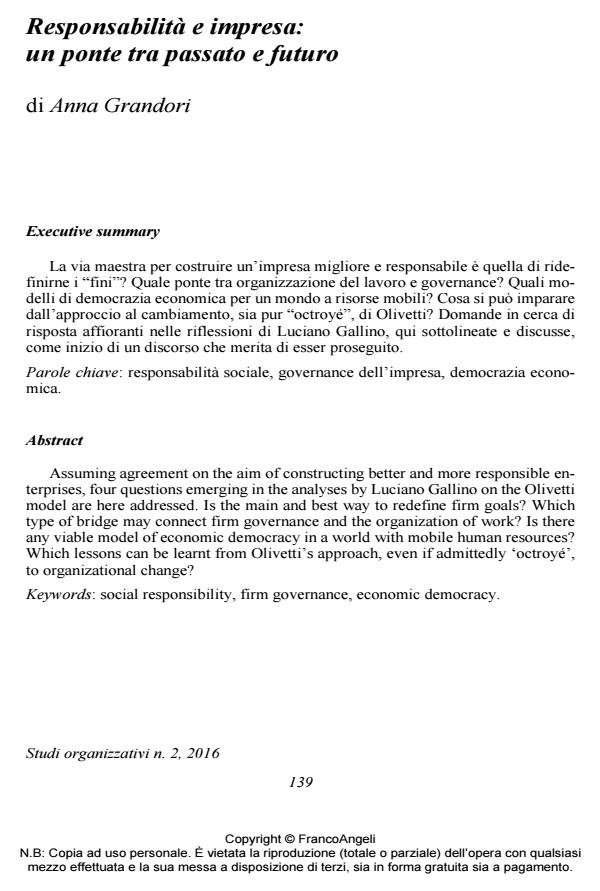Responsabilità e impresa: un ponte tra passato e futuro
Journal title STUDI ORGANIZZATIVI
Author/s Anna Grandori
Publishing Year 2017 Issue 2016/2
Language Italian Pages 10 P. 139-148 File size 152 KB
DOI 10.3280/SO2016-002010
DOI is like a bar code for intellectual property: to have more infomation
click here
Below, you can see the article first page
If you want to buy this article in PDF format, you can do it, following the instructions to buy download credits

FrancoAngeli is member of Publishers International Linking Association, Inc (PILA), a not-for-profit association which run the CrossRef service enabling links to and from online scholarly content.
Assuming agreement on the aim of constructing better and more responsible enterprises, four questions emerging in the analyses by Luciano Gallino on the Olivetti model are here addressed. Is the main and best way to redefine firm goals? Which type of bridge may connect firm governance and the organization of work? Is there any viable model of economic democracy in a world with mobile human resources? Which lessons can be learnt from Olivetti’s approach, even if admittedly ‘octroyé’, to organizational change?
Keywords: Social responsibility, firm governance, economic democracy.
- Intrinsic CSR and Competition Giorgia Nigri, Giuseppe Lentini, pp.307 (ISBN:978-3-030-21036-6)
- Governance and accountability models in Italian certified benefit corporations Giorgia Nigri, Mara Del Baldo, Armando Agulini, in Corporate Social Responsibility and Environmental Management /2020 pp.2368
DOI: 10.1002/csr.1949
Anna Grandori, Responsabilità e impresa: un ponte tra passato e futuro in "STUDI ORGANIZZATIVI " 2/2016, pp 139-148, DOI: 10.3280/SO2016-002010